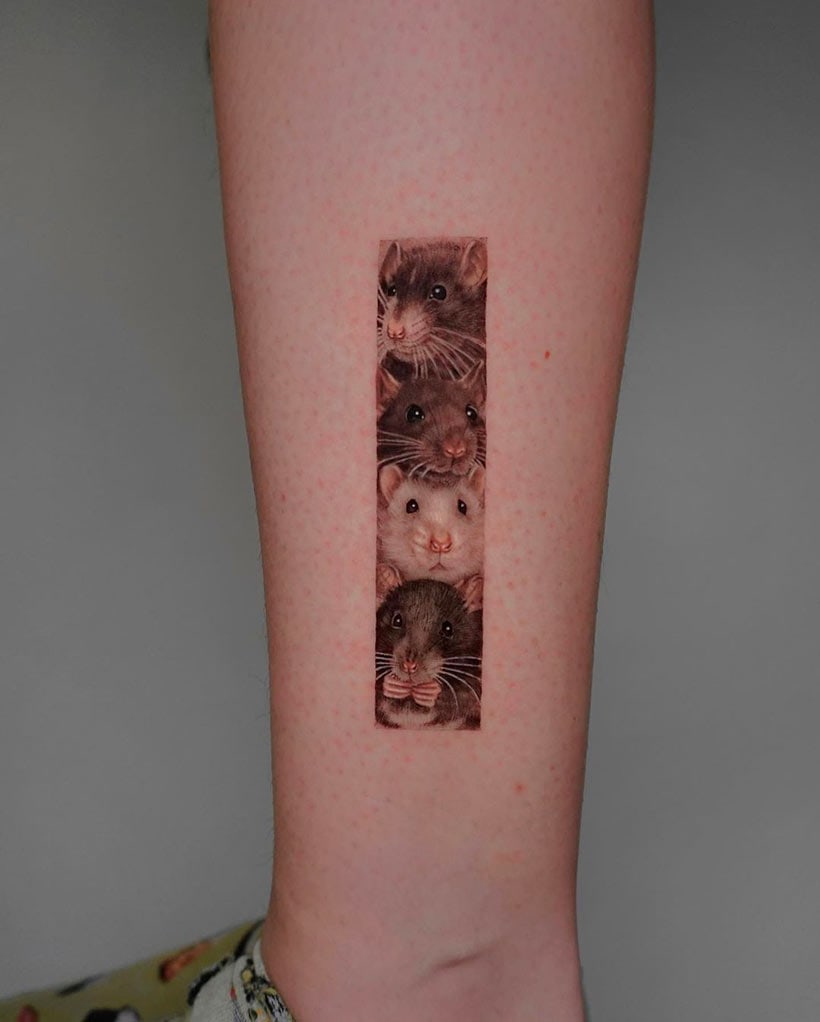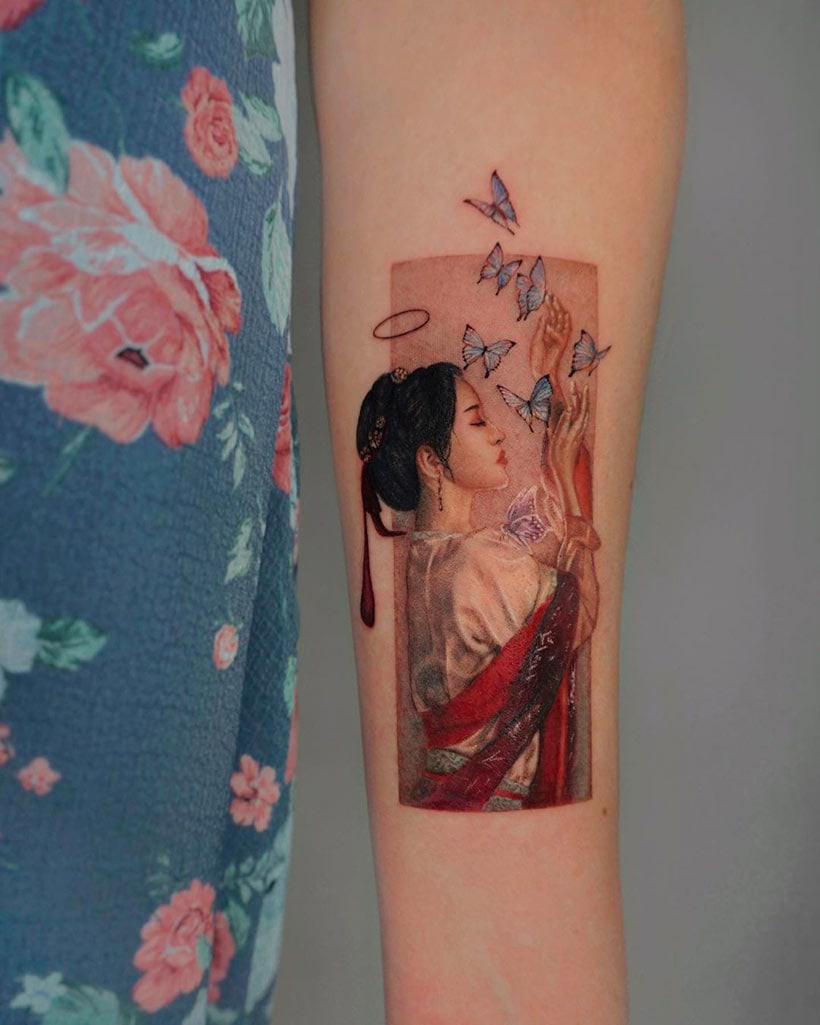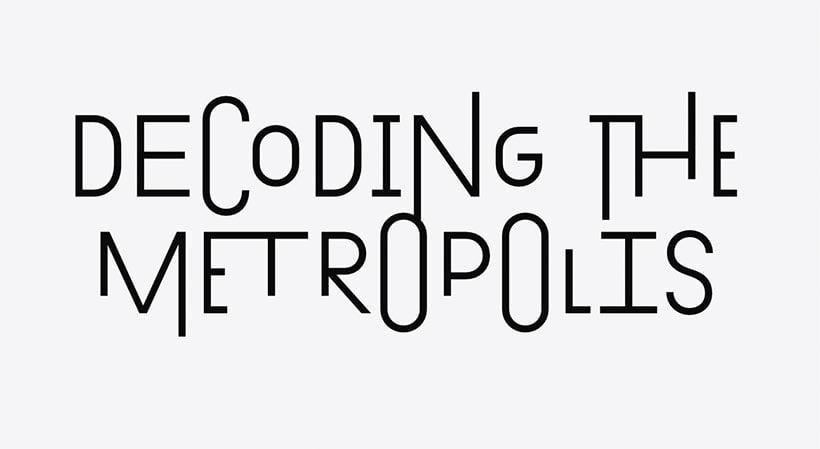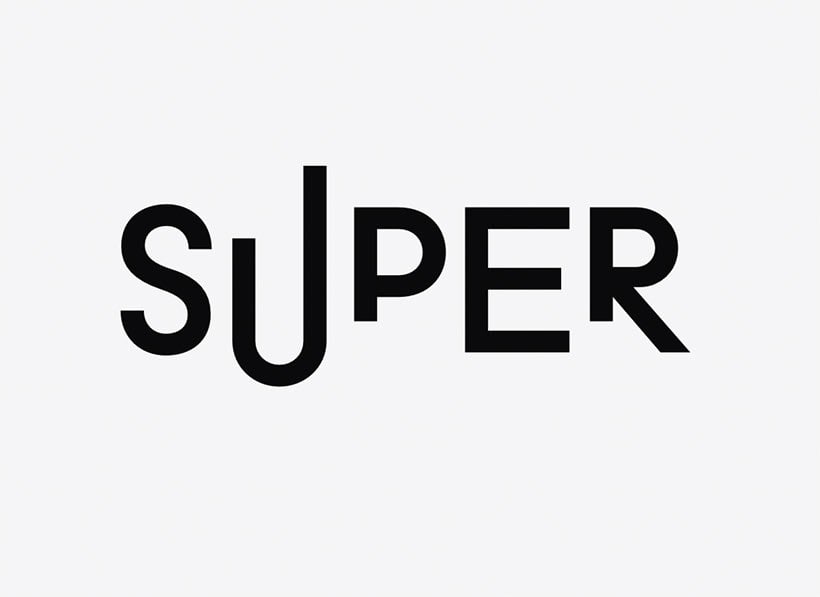 |
|
|
|
|
[Heads up: this issue has a longer-than-usual intro because I wanted to share several quotes of an essay I enjoyed. I also included the essay in the Food for Thought section further below if you want to skip my opening remarks.]
Ever since coming to terms with the fact that our beliefs are a product of our environment, it all seemed a bit too arbitrary to me to really care much about spirituality. In recent years, though – in part because of my increased anxiety about ecological breakdown – I’ve been trying to learn more about Indigenous perspectives, and in particular the idea of humans as ‘temporary caretakers’ whose role it is to strengthen the bonds and balance between all things.
In the essay Returning the Gift, Dr. Robin Wall Kimmerer describes this relationship beautifully. Sharing stories from her Native American Potawatomi ancestors, Klimmerer begins by pointing out the many gifts provided to us by the Earth, but also how we’ve come to accept those gifts without any sense of reciprocity:
“Though we live in a world made of gifts, we find ourselves harnessed to institutions and an economy that relentlessly asks, ‘What more can we take from the Earth?’ This worldview of unbridled exploitation is to my mind the greatest threat to the life that surrounds us. Even our definitions of sustainability revolve around trying to find the formula to ensure that we can keep on taking, far into the future. Isn’t the question we need, ‘What does the Earth ask of us?’”
The answer to this question is fairly simple: gratitude. But showing gratitude requires us to pay attention.
“Paying attention is an ongoing act of reciprocity, the gift that keeps on giving, in which attention generates wonder, which generates more attention – and more joy. Paying attention to the more-than-human world doesn’t lead only to amazement; it leads also to acknowledgment of pain. Open and attentive, we see and feel equally the beauty and the wounds, the old growth and the clear-cut, the mountain and the mine. Paying attention to suffering sharpens our ability to respond. To be responsible. This, too, is a gift, for when we fall in love with the living world, we cannot be bystanders to its destruction. Attention becomes intention, which coalesces itself to action.”
This simple act of paying attention, of listening, is impossible, though, if we don’t even know who we’re meant to listen to.
“Ethnobiologists tell us that our great-grandparents spoke fluent natural history. They knew the names and personalities of dozens of birds and hundreds of plants. Today the average American school child can recognize more than a hundred corporate logos. They can give a name to about ten plants, and these include such categories as ‘Christmas Tree’ and ‘Grass’. We have lost an entire vocabulary, of speech, of experience, and of relationship. Our fundamental currency of relationship, our highly evolved capacity for paying attention to those species who sustain us, has been subverted in a kind of intellectual hijacking. How can we care for them, monitor their well-being, and fight for their existence if we don’t even know their names?
We have enabled a state of nameless anonymity, bringing human people to a condition of isolation and disconnection, that philosophers have called ‘species loneliness’. Species loneliness – this deep, unnamed sadness – is the cost of estrangement from the rest of creation, from the loss of relationship.”
Reversing this loss of relationship – and preventing our own demise – requires fundamental change not (just) of the systems we created, but within ourselves.
“While we race around asking how we might change technology or tax structures, the change that might save us goes unspoken: what we need to change is ourselves. The danger is that we have been captured by a worldview that no longer serves our world, if it ever did – a worldview whose manifestation is destroying our beloved homelands, our fellow species, and ourselves. But all we can talk about is changing light bulbs.
I don’t think that it is more technology we need, or more money, or more data. We need a change in heart, a change in ethics, away from an anthropocentric worldview that considers the Earth our exploitable property to a biocentric, life-centered worldview in which an ethic of respect and reciprocity can grow.”
I’ll stop here for brevity’s sake, but I hope I’ve made Kimmlerer’s essay compelling enough for you to give it a full read.
In trying to understand why I’m drawn to Indigenous perspectives*, I have to acknowledge that for a typical ‘non-believer’ like myself, the sway of science has its limits. Indigenous cultures, some of them tens of thousands of years old, have understood the intricacies of the web of life long before we termed phrases like ‘nature’ or ‘biodiversity’. This profound awareness of the interdependence of everything – of Homo Sapiens not as some sort of supreme species at the top of an imagine pyramid, but as just a tiny part of a fragile system reliant on reciprocity – is immensely humbling.
– Kai
(*My understanding of Indigenous practices and beliefs is limited to what I learned from essays, short stories and some experiences exploring Australia. Indigenous spirituality is extremely diverse around the world. In Australia alone, Aboriginal and Torres Strait Islander people are made up of over 500 distinct groups and clans, each with their own culture, customs, language and laws.)
|
|
|
Become a Friend of DD for $1.80/month →
With a modest yearly contribution you’re not only helping keep Dense Discovery going, you also receive special discounts and get access to the DD Index, a searchable catalogue of past issues. (And it makes this message disappear.)
You receive this email because you subscribed to Dense Discovery, a weekly newsletter at the intersection of technology, design and culture. Writing to you from Melbourne is Kai Brach. Do you have a product or service to promote in DD? Sponsor an issue or book a classified.
|
|
An Email Intelligence Agency SPONSOR
|
|
Writing the perfect cold email is an art. That’s why sales teams outsource their email copywriting to Inbox Ventures. Let us write the emails that book meetings, so that your sales team only has to press ‘send’. And like magic – more demos, more deals. Because let’s face it, you didn’t hire your sales team to draft copy, you hired them to close.
|
|
|
Apps & Sites
|
Simple WYSIWYG text editor
|
|
This free and open-source WYSIWYG editor supports a range of markdown versions and offers themes, extensions, various editing modes and more.
|
|
|
AimHi Earth describes itself as an “education-to-action organisation on a mission to activate a billion nature-first thinkers to build the future we all deserve”. One of its main offerings is a live, interactive, four-part climate course to equip more changemakers with tools for leading the climate movement. The next course starts in February and it’s only £25 (or free if you can’t afford it).
|
|
Discover new monospace fonts
|
|
If you’re tired of looking at code in your text editor, you might need a fresh typeface to spruce things up. This gallery by CSS Tricks lets you explore a range of (mostly) free alternatives to your system’s default monospace fonts.
|
|
Minimal, open-source illustrator
|
|
This simple tablet-first web app makes drawing geometric line illustrations as easy as connecting two dots: “All drawings are made of lines in a grid based canvas. The lines are limited to vertical and horizontal lines, and quarter circles.”
|
|
|
Worthy Five: Zoë Rose
|
|

Five recommendations by UX/accessibility trainer and disability enthusiast Zoë Rose
|
A video worth watching:
It’s not often that the question ‘What if everything you knew about X was wrong?’ leads to anything interesting at all – this is an exception: Ian Bogost’s keynote on ‘Fun’ at UX Week 2013, a talk that led to his book Play Anything.
A concept worth understanding:
How the different nervous systems affect your behaviour. For example: The sympathetic nervous system is involved in ‘fight or flight’ responses which speeds up your heart and raises levels of hormones. The parasympathetic nervous system is involved in ‘rest and digest’ responses, and should be active most of the time. Which is to say: being relaxed is not just the absence of stress; it is the presence of chill.
A question worth asking:
‘Are you having thoughts of suicide?’ This is the question that Lifeline recommends asking when you think a person is at risk of suicide. All safety questions should be yes/no. When a life is at risk, that’s a safety matter, and you need unambiguous answers. The structure of this question makes it very hard to answer with anything other than a yes or no – and any answer that isn’t a clear ‘no’ is a ‘yes’. I’ve asked this question recently, and the answer was ‘yes’. I’ll be forever grateful that I had it to hand.
A piece of advice worth passing on:
The key to identifying your talents is not pride; it’s embarrassment. If you consistently find yourself embarrassed that the people around you can’t do something that is intrinsically easy, that thing is not intrinsically easy. It’s intrinsically difficult, and you have a talent for it.
An activity worth doing:
Your physio exercises. Speaking as someone who is still recovering from a disabling injury three years later, do your physio exercises, no matter how silly or boring they are.
|
|
|
Books & Accessories
|
Visions of a world beyond crisis
As this issue’s opening quote makes clear, we are constructing our future by what we envision. This collection of essays by authors, thinkers, activists and academics from six different continents provides the inspiration necessary to guide our work towards a positive future. Writers include Michael Pollan, Varshini Prakash, Kim Stanley Robinson and Jeremy Lent.
|
|
A biannual indie travel magazine
I always felt that the imagery and stories of travelling lend themselves perfectly to the printed page: magazines are little time capsules left behind in random places, carrying stories for and by other travellers. Wrong Journal is a new addition to this genre. Produced in Berlin, its inaugural issue features a diverse list of contributors. Friends of DD enjoy a 10% discount.
Become a Friend to access specials like this.
|
|
|
Overheard on Twitter
|
|
A signal is not a trend. A trend is not a future. A future is not THE future.
|
|
Food for Thought
|
|
For more on this piece, see my intro. An essay reminding us of the gifts bestowed to us by all living things on Earth in a system founded on reciprocity. “The practice of gratitude can, in a very real way, lead to the practice of self-restraint, of taking only what you need. Naming and appreciation of the gifts that surround us creates a sense of satisfaction, a feeling of ‘enoughness’ that is an antidote to the societal messages that drill into our spirits, telling us we must have more. Practicing contentment is a radical act in a consumption-driven society.”
|
|
|
In this essay for Real Life, Sun-Ha Hong points out that we’re being sold recycled visions of the future under the illusion of ‘tech innovation’. Behind the language of frictionless convenience hide yesterday’s ideas, wrapped in alluring promises of a better tomorrow. “While the truly automated future never quite arrives, the dream is perpetually tended by an ever-increasing population of badly paid, and badly treated ghost workers. These recurring technofutures perpetuate a familiar equation in which convenience equals freedom – and to be free is to have things for free, not just in terms of the dollar cost, but the erasure of time, space, and human labor. In this vision, we are invited to be the ‘greedy’ user that can have their cake and eat it too: maximally served by technology, and maximally insulated from its consequences.”
|
|
|
You may have heard of or seen the short documentary film Powers of Ten, written and directed by Charles and Ray Eames in 1977. (Yes, the design Eames!) The film was and still is a powerful illustration of the vastness of our universe. The BBC recently commissioned a 21st-century remake of that same idea but with more refined imagery and the soothing voice of Professor Brian Cox. Truly mind-boggling.
|
|
|
Aesthetically Pleasing
|
|
South Korean artist Lee Sangsoo describes his animal sculptures made from colourful metal strips as “drawings in the air”.
|
|
|
The Atlantic has a great Twitter account dedicated to photo journalism that regularly posts stunning images of current global events.
|
|
|
Lunartik is a talented Hamburg-based tattoo artist specialising in photo-realistic portraits of people and animals.
|
|
|
Exposit is a stencil typeface that “encourages to take affect on the expression of its letterforms – which can be uniform and calm or irregular and turbulent”. Combine regular letters with their stylistic alternates or ligatures to create unique, erratic-looking combinations.
|
|
|
Did You Know?
|
|
‘10,000 steps a day’ is not science-backed health advice but a marketing idea.
|
|
The often-cited 10,000-steps-per-day health recommendation is based on a marketing campaign by a Japanese pedometer manufacturer. The Japanese character for 10,000 (万) looks like a person walking and lent itself to selling pedometers. The actual health merits of that exact number have never been validated by research. While the benefits of walking are beyond doubt, the amount of steps that are useful to our health depends on our individual circumstances.
|
|
|
Classifieds
|
|
Subscribe to the Nerdletter: a weekly newsletter designed to practically educate, thoughtfully illuminate and get you thinking differently about money in the world.
Let us take the hassle out of making emails look consistently great. We custom-code your HTML email to work in all clients and devices, including Outlook. Request a quote today.
The 19th News(letter) is news in your inbox by The 19th* an independent, nonprofit newsroom reporting on gender, politics, and policy. Consider membership at various levels.
Take the Mini Design MBA and learn business skills relevant for designers with the free 7-day email course.
|
|
Classifieds are paid ads that support DD and are seen by our 35,000 subscribers each week.
Book yours →
|
|
|
The Week in a GIF
|
|
Reply or tweet at DD with your favourite GIF and it might get featured here in a future issue.
|
|
|
|
|















